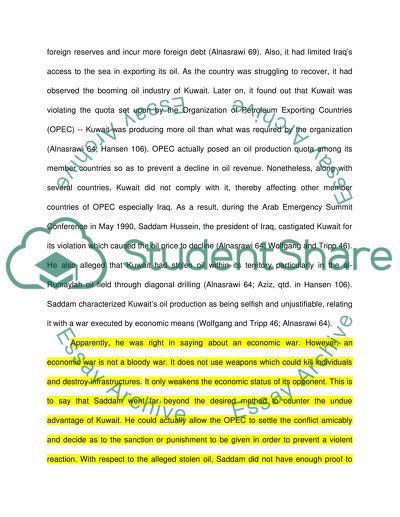Cite this document
(“Gulf War: Kuwait and Iraq Essay Example | Topics and Well Written Essays - 1750 words”, n.d.)
Retrieved from https://studentshare.org/environmental-studies/1420641-gulf-war-kuwait-and-iraq
Retrieved from https://studentshare.org/environmental-studies/1420641-gulf-war-kuwait-and-iraq
(Gulf War: Kuwait and Iraq Essay Example | Topics and Well Written Essays - 1750 Words)
https://studentshare.org/environmental-studies/1420641-gulf-war-kuwait-and-iraq.
https://studentshare.org/environmental-studies/1420641-gulf-war-kuwait-and-iraq.
“Gulf War: Kuwait and Iraq Essay Example | Topics and Well Written Essays - 1750 Words”, n.d. https://studentshare.org/environmental-studies/1420641-gulf-war-kuwait-and-iraq.


